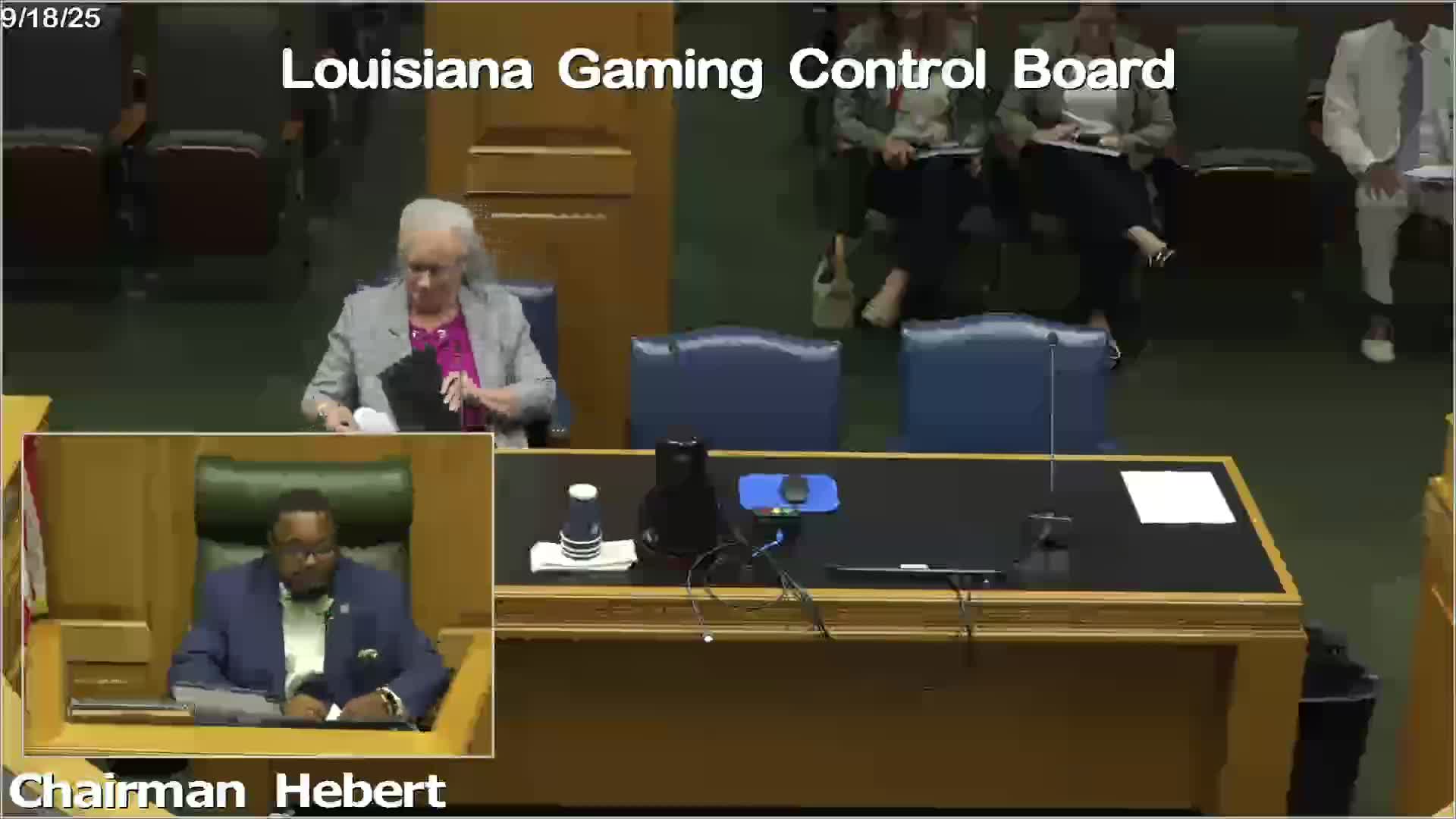Article not found
This article is no longer available. But don't worry—we've gathered other articles that discuss the same topic.
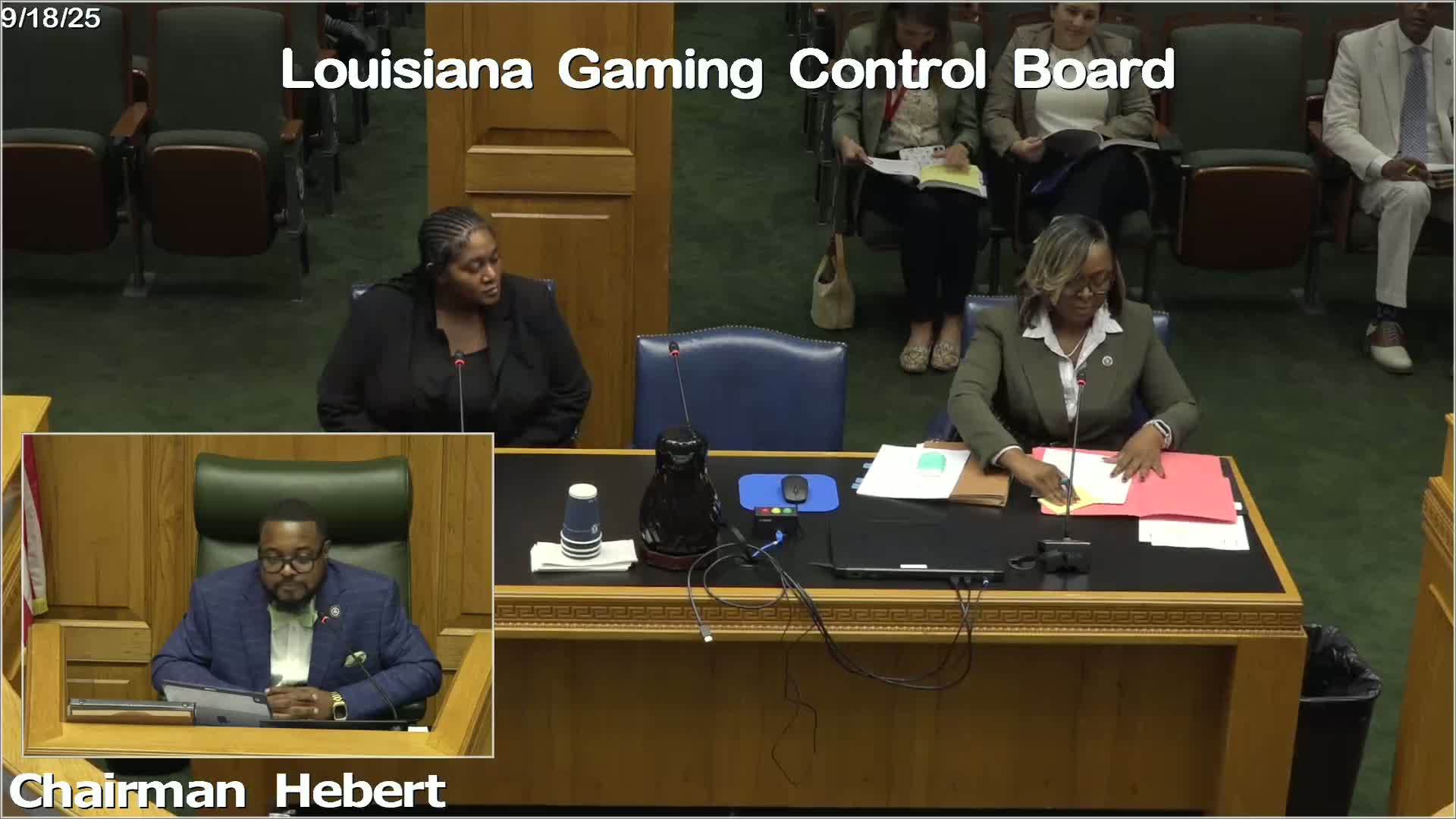
Board affirms hearing officer’s revocation of Tiffany Jackson’s gaming permit
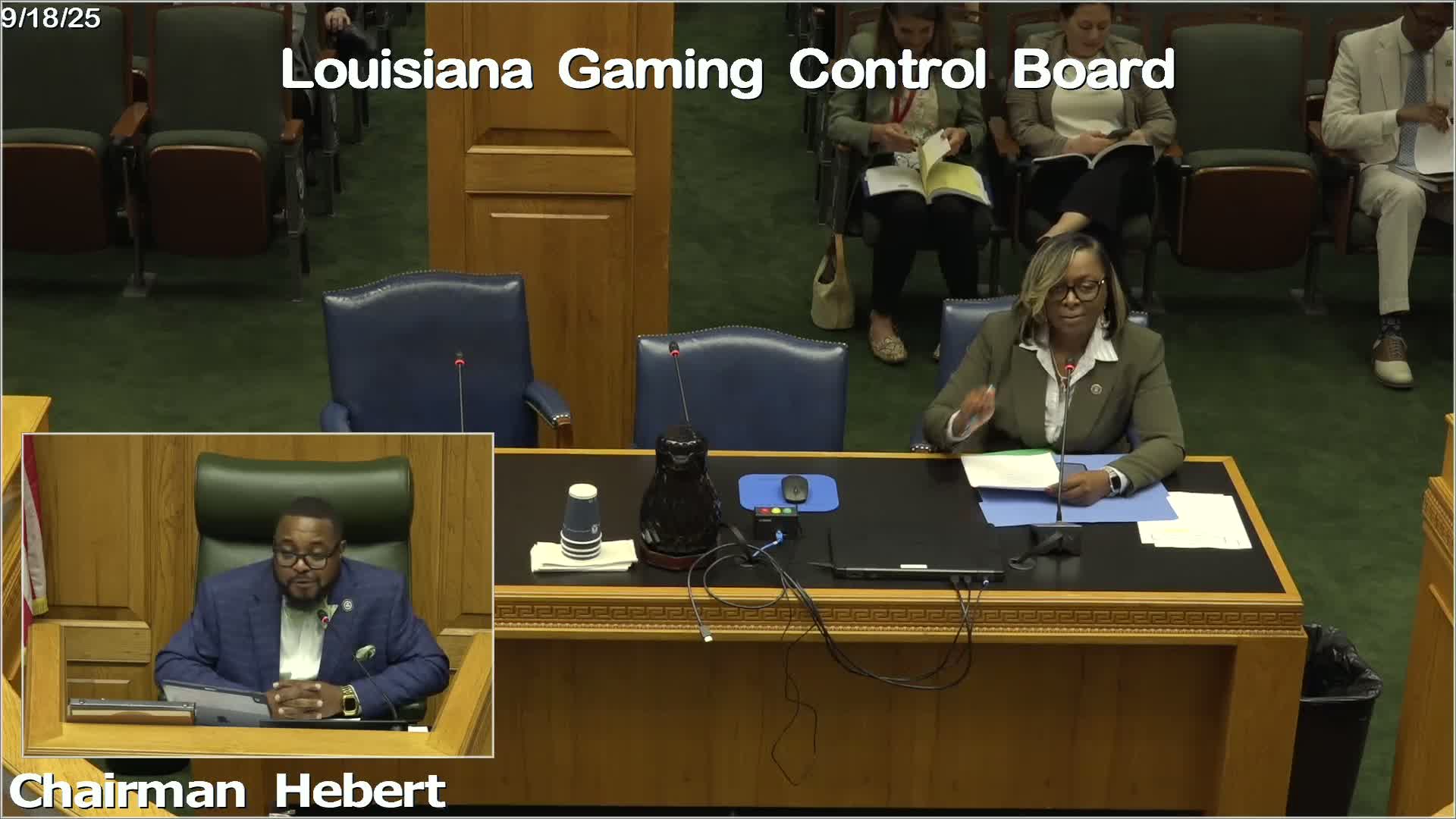
Gaming board approves two settlement agreements, including $3,000 penalty for Poorhouse Saloon
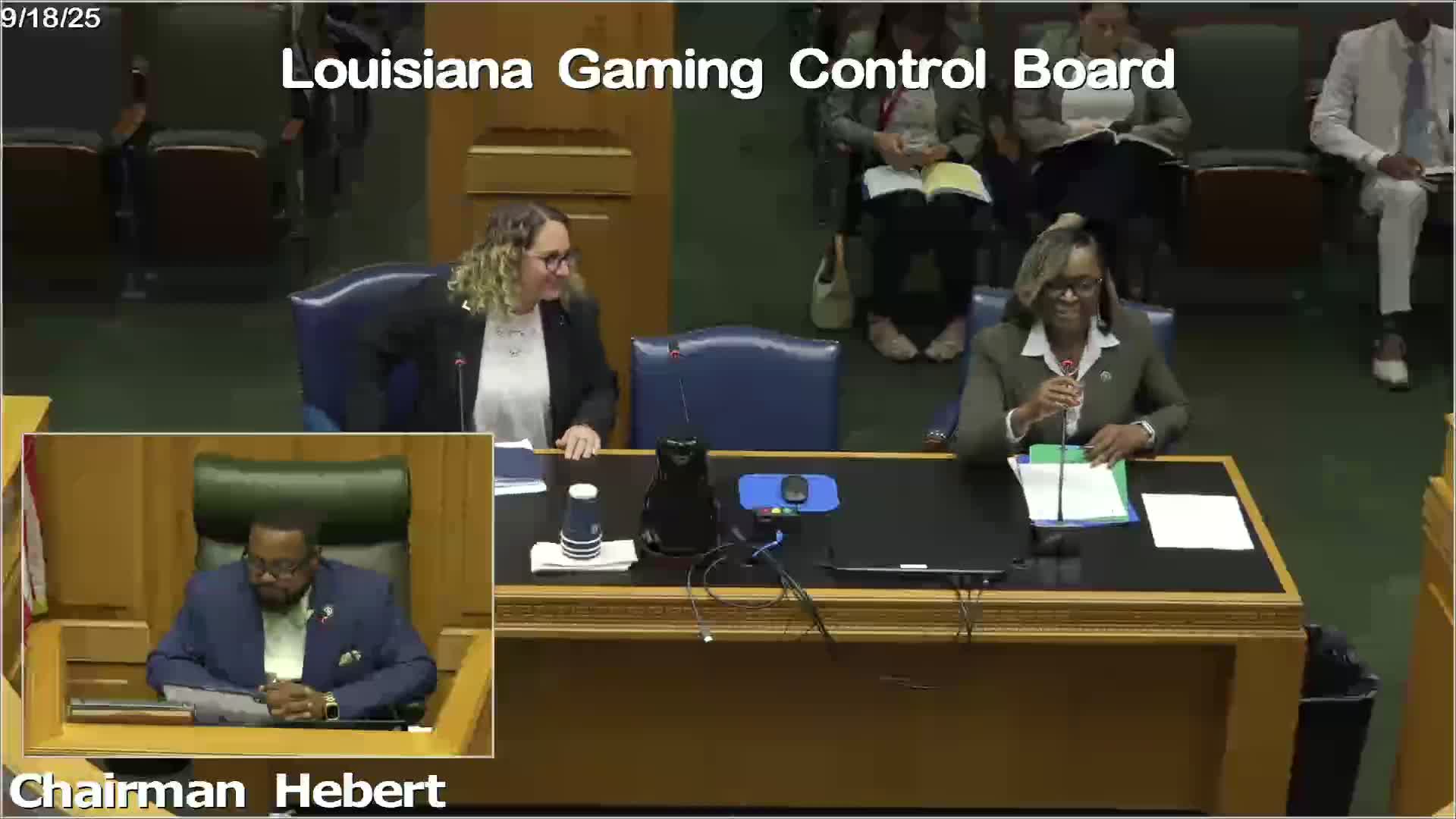
Gaming board approves FanDuel’s updated problem‑gambling program
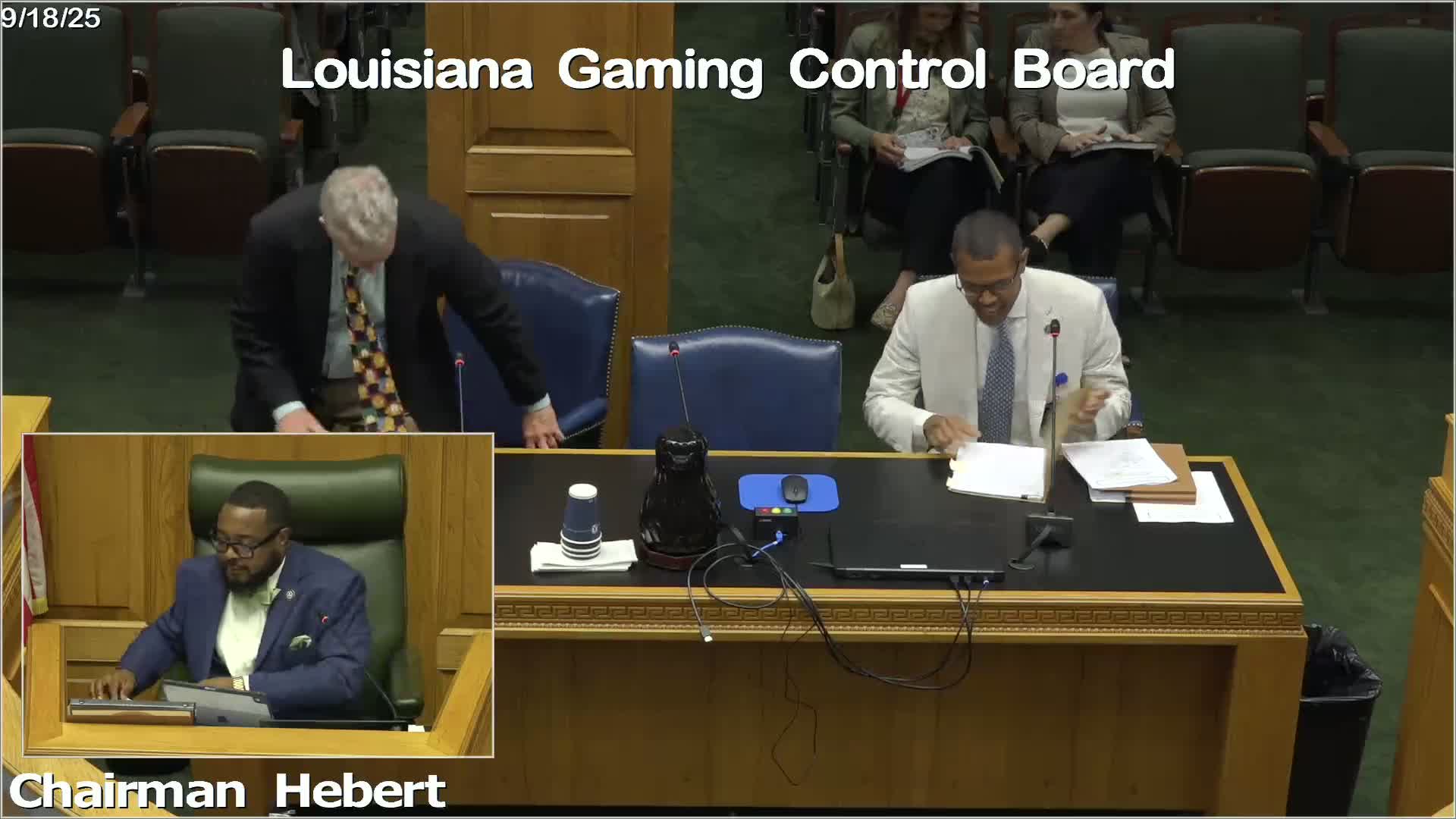
Gaming board approves three truck‑stop video poker licenses in St. Mary, Pointe Coupée and Calcasieu parishes
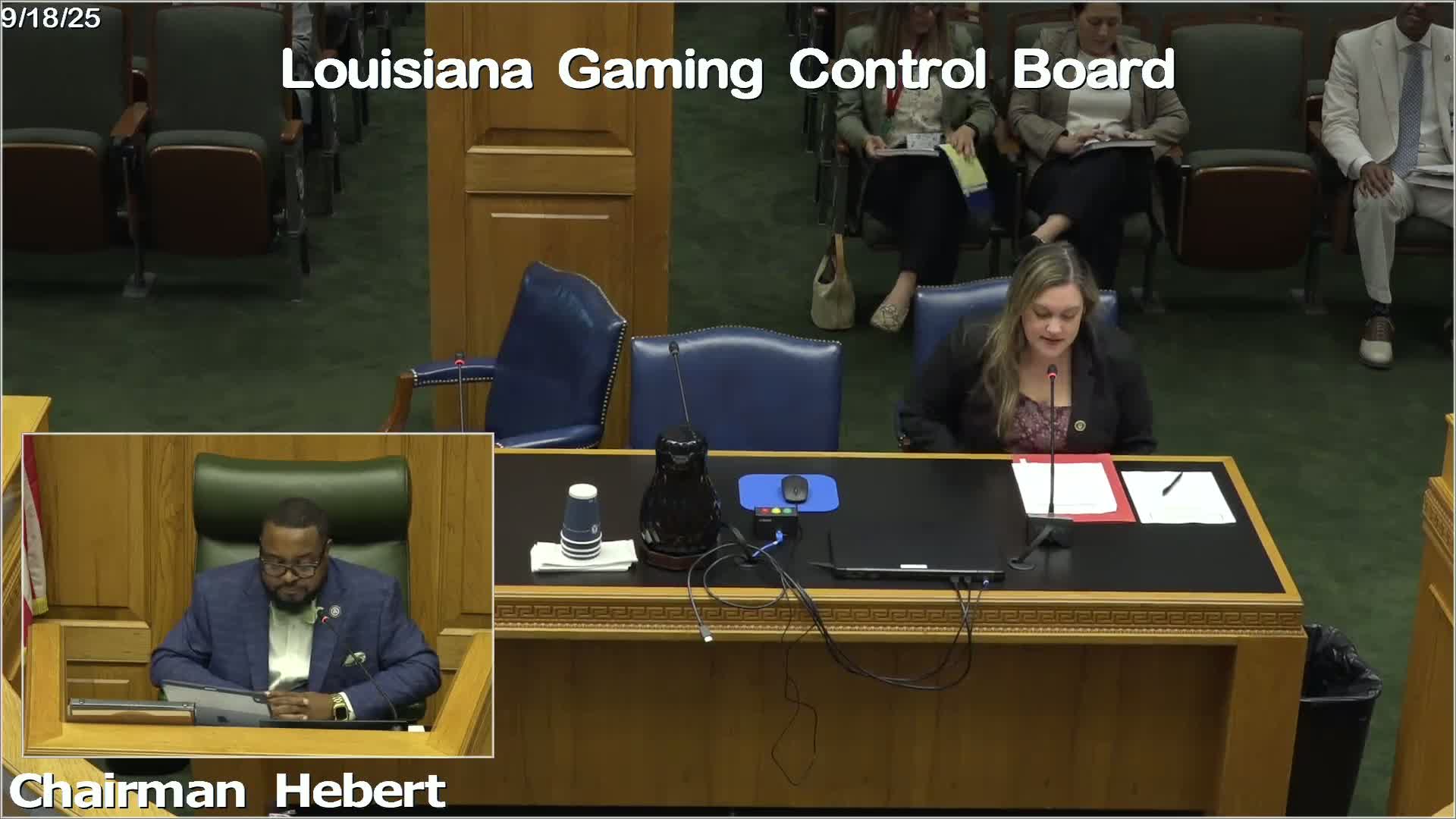
Gaming board institutes rulemaking to tie jackpot controls to federal W‑2G reporting threshold
